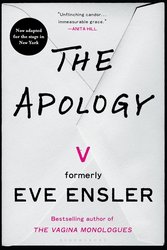The extraordinary Anita Brookner, praised by The New York Times as "one of the finest novelists of her generation," gives us a brilliant novel about age and awakening. In Visitors, Brookner explores what happens when a woman's quiet resignation to fate is challenged by the arrogance of youth. Dorothea May is most at ease in the company of strangers. When her late husband's relatives prevail on her to take in a young man for the week before an unexpected family wedding, Thea's carefully constructed, solitary world is thrown into disarray. As the wedding approaches, old family secrets surface and conflicts erupt between the generations, trapping an unwilling Thea in the middle. Confronted by the company of Steve Best, a carefree young wanderer, Thea's fragile facade of peaceful acceptance is pierced, forcing her to face in a new way both her past and her future. Exquisite writing, richly drawn characters, and penetrating prceptions about people are here combined into another superb novel by the writer about whom The New York Times Book Review has said, "If Henry James were around, the only writer he'd be reading with complete approval would be Anita Brookner."






